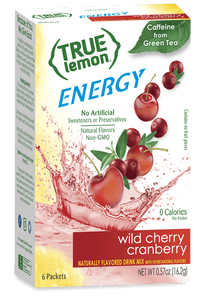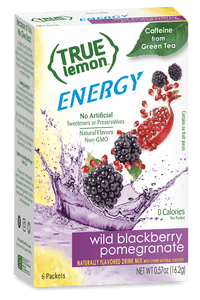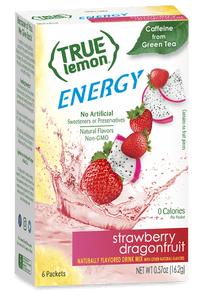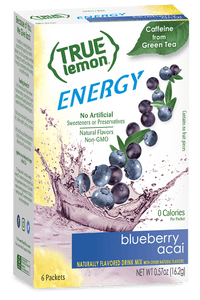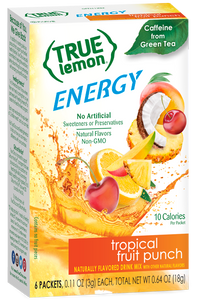April 12, 2022
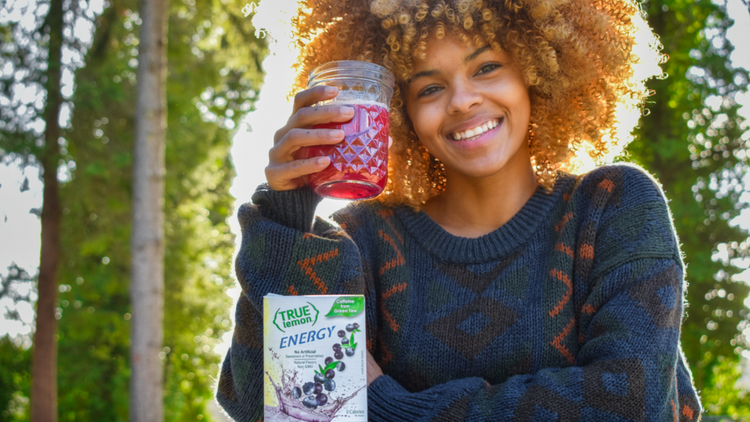
Clean Caffeine In Green Tea vs Coffee
How do you typically start your day? A nice bowl of oatmeal and sliced strawberries, or maybe bacon and eggs? No matter what you do, most of us have one thing in common when it comes to waking up… caffeine!
At least 90% of people in the world consume caffeine daily. And whether it’s coffee, tea or some other beverage, most of us enjoy a warm morning cup or an afternoon pick-me-up. Coffee and tea are also traditional for many people. It plays a center role in conversations, meetings and other gatherings.
But…there are so many questions. (And so many opinions!) How much caffeine is OK to have? Does green tea have caffeine? What is the amount of caffeine in tea vs coffee? Is one type of caffeine better than another?
Let’s try and answer some of these questions.

What is caffeine?
But what is it though? Good question. Caffeine is an occurring chemical compound found in many plants, like coffee and cocoa beans, and tea leaves. It is a stimulate and initiates a response from the central nervous system. Most people feel a boost of energy after consuming caffeine.
Many beverages contain caffeine, including brewed coffee, sodas, and energy drinks. Chocolate also has caffeine (because it is made from the cocoa plant.)
Some people mistakenly leave tea off of this list, but in fact tea contains caffeine. The only exception is most herbal teas which are caffeine free. All four major teas (white, green, oolong and black tea) come from the leaves of the Camellia sinensis plant. The difference in each comes down to processing and oxidation, which turns the tea leaves from green to black.
Does caffeine have health benefits?
Yes! Lucky for us, research shows that caffeine can provide certain health benefits. Along with an increase in energy levels, caffeine can:
· Sharpen brain function to increase productivity and help us think more clearly.
· Improve metabolism and help with weight loss.
· Enhance exercise performance.
· Lower risk for certain diseases, like diabetes and heart disease.
What are the side effects of caffeine?
Even though caffeine has some health benefits, for some people it may also contribute to other side effects.
· Anxiety.
· Headaches or migraines.
· Restlessness and difficulty sleeping.
· Dependency and problems concentrating without it.
What’s the difference between caffeine in green tea vs. coffee?
Caffeine in coffee goes straight into the bloodstream and stimulates most people almost immediately. This means you feel that coffee buzz soon after drinking it.
It’s a little different for green tea. First, green tea typically has less caffeine than coffee (more on this later). But green tea also contains an amino acid called L-theanine. This organic compound binds to caffeine and together, they balance and control the stimulating effects. This relationship also helps improve brain function by increasing dopamine and lowering anxiety.
Because of this bind with L-theanine, the caffeine in green tea releases slowly over time and provides more stable energy. So while some people experience jittery side effects associated with coffee, caffeine in green tea generally has a more mild and calming effect.
Green tea is also loaded with antioxidants and has many of its own health benefits. Benefits for some people mean better sleep, brain protection against aging and even reducing bad breath! It also has chlorophyll, an occurring pigment in green plants known for providing a health boost.

What kind of caffeine is in True Lemon Energy?
True Lemon Energy is made with clean and simple ingredients and powered with energy from green tea. Each serving is packed with Vitamin C and contains 120 mg of caffeine – the same amount found in a typical 16-ounce cup of coffee.
Because True Lemon Energy is made with caffeine from green tea, it gives a little boost to get you through your day without the jitters. The energy you get is more stable, lasts longer and can help keep you focused and calm. Adding True Lemon Energy to 16 ounces of water is also the perfect way to level up your water game and stay hydrated all day.
How much caffeine can I have?
According to the Mayo clinic, up to 400 mg of caffeine a day is considered safe for most adults, while pregnant women should limit their caffeine intake.
But sensitivity to caffeine varies from person to person. Some people experience restlessness and increased heart rate with one small cup of coffee, while others don’t notice any effects at all.

How much caffeine in…
Caffeine content varies beverage to beverage. And the amount of caffeine found in teas or coffees depends on how these products are brewed.
To determine the amount of caffeine, we look at factors like:
· Grind size for coffee – finer grinds mean more surface area for extraction, which means more caffeine.
· Brew time – a longer brew time means more caffeine is extracted from coffee grinds or tea leaves.
· Brew temperature – a higher brew temperature yields more caffeine.
Because of the way coffee is made (brewed at higher temperatures for longer and with more coffee per cup), it tends to have more caffeine than tea. On average, an eight-ounce cup of green tea will have 30-50 mg of caffeine, and eight ounces of coffee will have 100-200 mg.
Want to know how much caffeine is in your favorite drinks? The Center for Science in the Public Interest compiled this chart of caffeine content in many well-known foods and beverages.
More on Energy and Hydration



